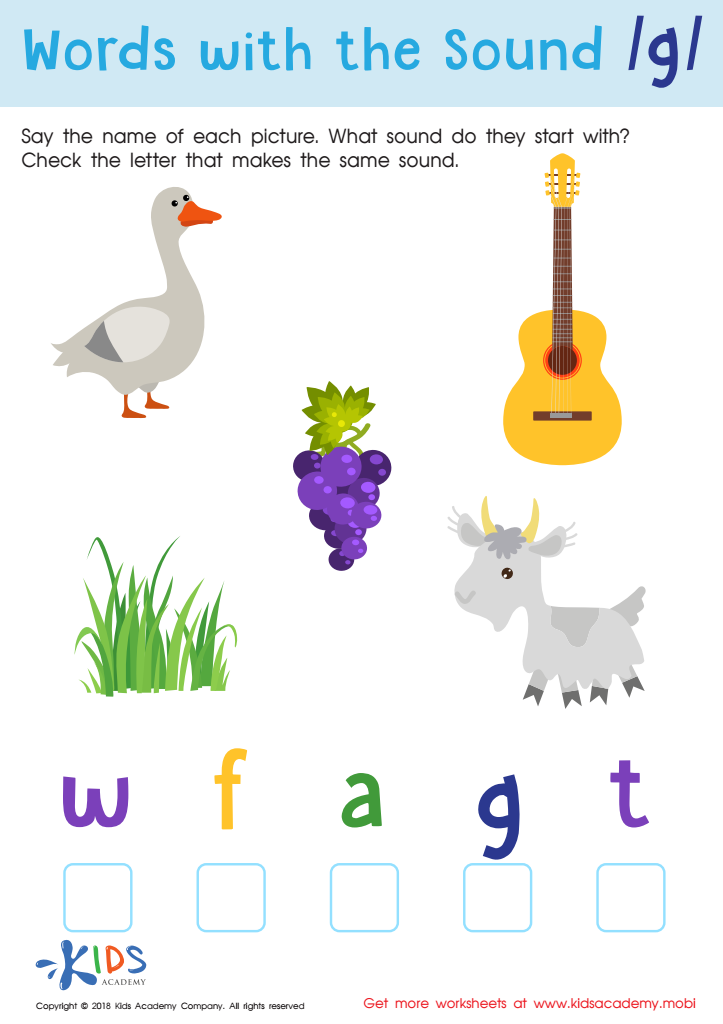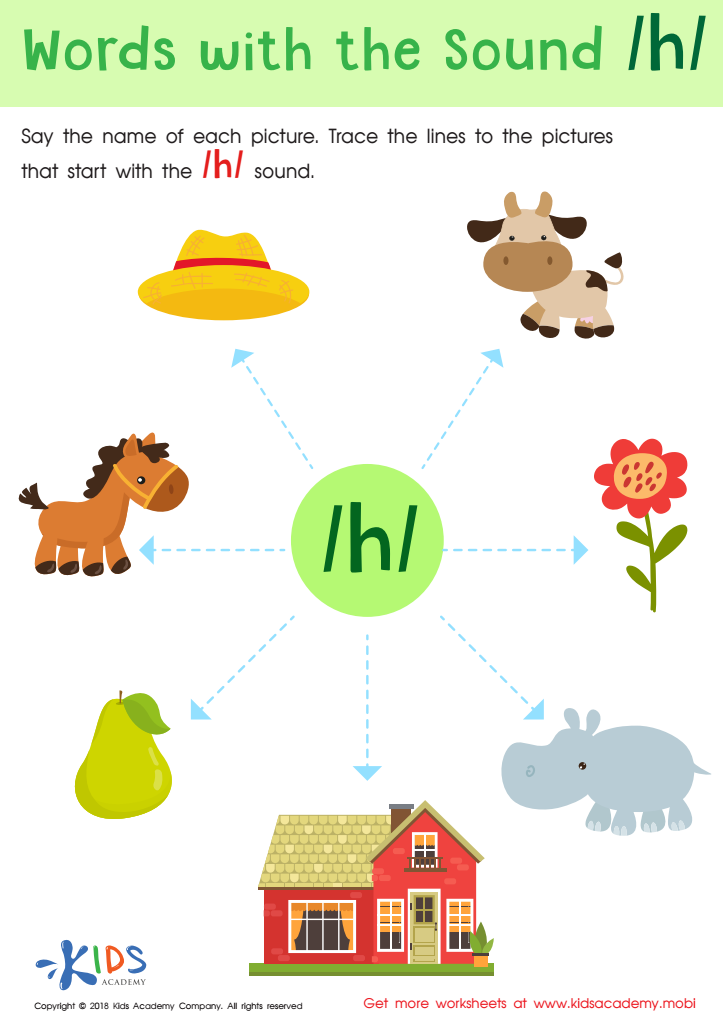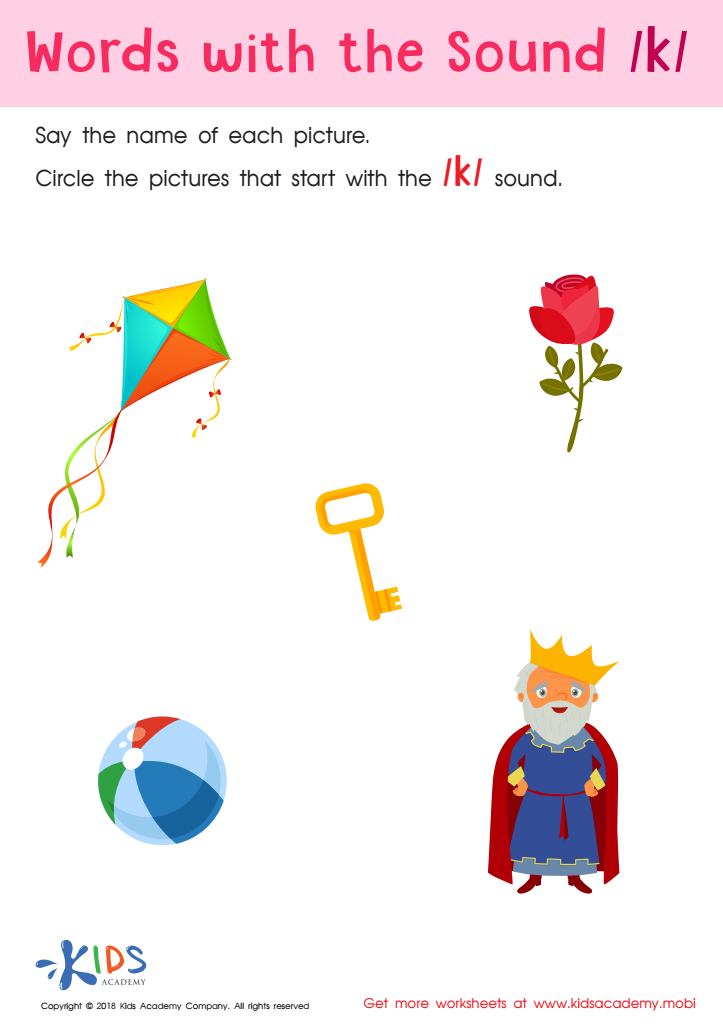Phonics Skills Beginning Sounds Worksheets for 4-Year-Olds
3 filtered results
-
From - To
Enhance your child's early literacy with our engaging "Phonics Skills Beginning Sounds Worksheets" designed specifically for 4-year-olds. These worksheets focus on helping young learners recognize and practice beginning sounds through fun, interactive activities. Featuring colorful images and easy-to-follow exercises, they make learning enjoyable and effective. Perfect for parents and educators, these printable resources support phonemic awareness, boost vocabulary, and lay a strong foundation for reading skills. Make learning phonics an exciting adventure as your child begins to identify letters and their corresponding sounds. Explore our collection today to foster a love for reading in your little ones!


Words with sound g Reading Worksheet


Words with sound h Reading Worksheet


Words with sound k Reading Worksheet
Phonics skills, particularly beginning sounds, are fundamental for early language and literacy development in 4-year-olds. When children learn to recognize and articulate the initial sounds of words, they build a strong foundation for reading and writing. This skill enhances their phonemic awareness, enabling them to decode words effectively as they progress in their literacy journey.
Understanding beginning sounds helps children make connections between spoken and written language, encouraging letter-sound correspondence. This not only fosters vocabulary growth but also boosts confidence in their ability to communicate. When children learn to identify the first sounds in words, they become more adept at sorting and categorizing their vocabularies, which supports cognitive development and critical thinking.
Furthermore, engaging children in activities centered around beginning sounds—such as rhyming games, sound baths, and letter hunts—promotes interactive learning and social skills. These playful yet educational experiences also strengthen the bond between parents, teachers, and children, making learning a collaborative adventure.
By emphasizing phonics skills like beginning sounds, adults provide children with essential tools for future academic success and a lifelong love for reading, setting them on a path toward effective literacy and communication skills.

 Assign to My Students
Assign to My Students




















